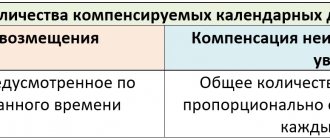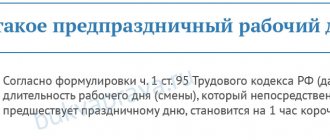Irregular working hours are often used by employers to regulate so-called “overtime”, but at the same time it causes a lot of debate.
Employers, as a rule, are confident that irregular working hours are not limited in time. Of course, this is a very common mistake associated with a lack of understanding of the legal standards for work and rest and, at the same time, an unreasonable desire to save on payments from the organization’s payroll fund. That is, the establishment of irregular working hours is a kind of optimization of personnel costs. Of course, this is a convenient position, which is approved by financial controllers, but does not always comply with labor laws.
Meanwhile, last year an attempt was made to limit the number of hours of “overtime” to 120 hours per year [1], but at the moment the relevant law is still under consideration. Moreover, the State Duma Committee on Federal Structure and Local Government Issues recommended that the lower house of parliament reject this bill.
Let's try to figure out how fair the interpretation of the law on long working hours in favor of the employer is in relation to commercial organizations, in which the temptation to abuse the right on the part of the employer most often arises.
Irregular working hours in the Labor Code of the Russian Federation
What is an irregular working day, the Labor Code of the Russian Federation gives the answer in Article 101 of the Labor Code of the Russian Federation. This is a special mode of work, according to which some employees, by order of the manager, may be occasionally involved in performing their work duties outside the standard work schedule. In turn, Article 100 of the Labor Code of the Russian Federation regulates the inclusion of information about irregular working hours in an employment contract, since information about the working hours is included in the list of mandatory ones. This fact is supported by Article 57 of the Labor Code of the Russian Federation “Content of an employment contract”.
The duration and mode of the working day are established in the internal documents of the organization in accordance with the norms of the Labor Code of the Russian Federation. Working beyond the norm is one of the controversial issues that periodically arises before the head of an enterprise. What compensation are entitled to employees and which employees cannot be hired for such work? To consider these issues, it is necessary to analyze the current labor legislation.
Involvement in work outside the working hours should be done sporadically, and not constantly. Involvement can be carried out both before and after the start of a standard shift, without obtaining additional consent from the employee, and in any form, including oral. This is stated in the Letter of Rostrud No. 1316-6-1 dated 06/07/2008, which provides explanations on the procedure for applying such a work schedule.
Since the law does not define the concept of episodicity, this gives rise to disputes between the employer and employee. There are additional clarifications on this controversial issue in the Letter of the Ministry of Labor dated October 29, 2018 No. 14-2/OOG-8616. According to the position of the ministry, the working day in connection with the establishment of such a schedule should not turn into an extended one. The established standard of working time remains the same; the duration of overtime, therefore, should be within reason. That is, in the opinion of the law enforcement officer, the working day should definitely not become dimensionless and increase in duration. The very sign of episodicity must be established for each situation, taking into account the labor function.
Employees do not have the right to independently change their working hours. The establishment of irregular working hours does not provide grounds for lateness, delays, etc. This does not mean the introduction of a flexible work schedule. Employees must still comply with discipline and the requirements of the Internal Labor Regulations.
At the same time, an employee who is involved in work outside the working time schedule established for him may apply for additional days of vacation, even if the condition of an irregular working day is not specified in his contract.
Let's sum it up
- The work regime with irregular hours is distinguished by a number of features that characterize the procedure for its establishment and application. It is never used for all employees at the same time. The list of positions for which the working day is not standardized is established by the employer. But the employee’s consent is also necessary.
- It is impossible to introduce an irregular day for persons whose positions are not on the list, and for employees who have a position included in the list, but did not agree to work in this mode. It is impossible to establish it for workers whose working hours are required to be reduced by law, as well as for those whose work is carried out with part-time work, implying a reduction in the length of the working day.
Unlock access to the private part of Clerk with a Premium subscription. Get hundreds of webinars and online courses, unlimited consultations and other proprietary content for accountants.
Hurry up to subscribe with a 20% discount until October 15, 2021. Read more about “Premium” here.
Long hours and overtime: similarities and differences
Overtime work is a separate type of overtime, which has nothing to do with the irregular working hours. However, these concepts are often confused.
For working hours in excess of the norm, the employee is only entitled to additional leave, in accordance with the Labor Code of the Russian Federation. At the same time, the employees involved in them are subject to all the rules governing the beginning and end of work, the procedure for recording working hours, exemption from work on weekends and holidays, etc.
Now let's take a closer look at the differences between irregular working hours and overtime work, with which it is most often confused. For easier understanding, let's present them in a table:
| Irregular day | Overtime work |
| Start and end times can be changed flexibly | Start and end time of work (shift) - in accordance with PVTR |
| Occasional overtime, no restrictions on the duration of overtime | No more than 120 hours per year and 4 hours on two consecutive days |
| The condition of working outside the standard hours must be specified in the employment contract, in the section “Working hours” | The provision for overtime work is not included in the employment contract |
| The consent of an employee subject to the appropriate regime is not required to engage in work. | Employee consent is required to engage in overtime work. |
| Additional days of vacation are applied as compensation | Additional increased pay or time off will be used as compensation. |
The Letter from the Ministry of Labor states that employment on weekends and holidays is carried out in accordance with Art. 113 Labor Code of the Russian Federation. Even if an overtime work schedule is established for workers, weekends and holidays do not automatically become working days for them. That is, the established procedure must be followed: obtaining consent in writing with prior notification of the opportunity to refuse (for certain categories of workers) and obtaining the opinion of the elected trade union body and the subsequent issuance of a special order on working on a weekend or holiday. Payment is made in an increased amount, in accordance with the law. The same applies to night work.
IMPORTANT!
The law establishes an eight-hour working day, not including break time.
In what cases is an application for additional leave necessary?
When employees go on additional vacation as scheduled, they may not write a statement, and the employer, in turn, must remind them of the upcoming vacation two weeks in advance (Article 123 of the Labor Code of the Russian Federation). If an employee goes on vacation outside of the schedule, he must write a statement.
After reading the application, the manager signs an order granting additional leave for the dates specified in the application. The employee must be familiarized with the order.
How many hours can an irregular working day last?
A five-day work week with two days off and eight-hour shifts is the standard work schedule in Russia. But the employer has the right to increase the duration of work if necessary, using overtime or work outside the norm. At the same time, the duration of overtime work is limited, but irregular working hours are not. The law only limits the conditions for engaging in work beyond the norm: they must be episodic, and the employer must really need the employee to perform his direct job duties. The duration of overtime is not limited; the main criterion for determining it in this case is its sufficiency to complete all tasks set by the employer (included in the employee’s labor function). On the issue of episodicity: such processing should not be done every day over a long period of time.
Time frame
Despite the fact that an employee may have an irregular day, he cannot be kept at work for a day. The Labor Code of the Russian Federation emphasizes the episodic nature of involvement in the performance of labor duties during non-working hours. Therefore, the employer is obliged to be guided by the principle of reasonableness, set clear goals and require the subordinate to implement them within specific deadlines.
Important! Even if an employee is subject to the NSD regime, it is unacceptable to require him to work on a weekend or holiday.
In turn, an employee who has agreed to the terms of the NSD is obliged to comply with the work schedule established for him. A person does not have the right to come to work late, be absent or leave early on the grounds that, for example, yesterday or last week he had to repair equipment before 01:00 am.
What compensation is due?
Since information about an irregular schedule is significant and must be included in the employment contract, the employer must familiarize the future employee with this condition, as well as the compensation that he is entitled to for overtime working hours. In particular, according to Article 119 of the Labor Code of the Russian Federation, employees who work in this mode are entitled to additional paid leave. Its duration is determined by the collective agreement, but it cannot be less than three days.
An employee has the right to contact the employer with a request to replace additional leave for overtime with monetary compensation. This possibility is provided for in Article 126 of the Labor Code of the Russian Federation. However, providing this cash payment is the employer's right, not an obligation.
Additional leave and main leave: how to divide
Additional paid leave can be combined with the main one, or the employee can take it off separately. Please note that once a year an employee is required to take an indivisible part of vacation of 14 days (Article 125 of the Labor Code of the Russian Federation). It is better to allocate it from the main leave, since the number of days in it is fixed and, unlike additional, cannot be reduced due to long sick leave or the cancellation of harmful working conditions during a special assessment.
An employee can also receive additional days to the main vacation in advance. An exception is rest for work in hazardous working conditions, since, as we described above, it is given for the time actually worked (Article 121 of the Labor Code of the Russian Federation, Letter of Rostrud dated March 18, 2008 No. 657-6-0).
List of positions with irregular working hours
According to Article 101 of the Labor Code of the Russian Federation, responsibility for preparing a list of positions with irregular working hours lies with the employer. This list must be included in the internal labor regulations, collective agreement or other regulations of the enterprise. This norm is confirmed by Decree of the Government of the Russian Federation of December 11, 2002 No. 884. According to it, the list may include positions in which employees distribute working time independently, and the duration of work cannot be accurately recorded. For example, such positions may include:
- managers;
- technical personnel: workers, security guards, etc.;
- housekeeping staff;
- maintenance personnel;
- accounting and financial department employees;
- technologists;
- adjusters.
When preparing a list of positions and assigning employees to them, it is necessary to rely on labor law norms regarding which categories of employees cannot be assigned to work with irregular working hours. This category includes:
- persons aged 14 to 18 years;
- disabled people of all groups;
- workers and workers of other specialties engaged in hazardous and harmful types of work.
How to formalize the involvement of an employee to work outside the schedule
An organization may draw up a separate Regulation on irregular working hours or issue a special order. The standard form order contains all the necessary details and a separate paragraph indicates that an irregular working day is being introduced in accordance with the Labor Code of the Russian Federation for certain categories of workers. A list of positions for which irregular working hours are established can be given in the appendix to the order.
Order on approval of the list of positions
Despite the fact that the Labor Code does not contain a direct prohibition on hiring pregnant women for work with irregular hours, it is still not recommended to attract this category of workers, since the appointment of pregnant women to positions with irregular working hours is contrary to Article 93 of the Labor Code of the Russian Federation. She says that a woman has the right to a shorter working day.
Employment contract
Drawing up an employment contract is mandatory when applying for a job. When applying a regime of irregular working hours, an indication of it must be present in the agreement between the parties. By signing such an agreement, the employee agrees to the establishment of a special working day. It is also necessary to familiarize the new employee with all local regulations.
Order for employment with irregular working hours
It is worth remembering that any employee, be it a worker or a director, can be involved in additional work only to fulfill their job duties. The performance of other types of activities must be formalized as a separate agreement.
How is a non-standard operating mode established?
Establishing NSD for certain categories of employees includes several mandatory steps:
- A list of positions at the enterprise for which NSD is expected is developed and approved. There is no specific list in the legislation, so employers need to do this themselves, based on the specifics of the activity and the functionality of the positions. According to statistics, the following positions and professions top the list:
- senior management representatives;
- employees whose work schedule is related to the work of management: assistants, secretaries, clerks, personal drivers, translators;
- heads of accounting and financial services;
- heads of departments with atypical work schedules (for example, warehouse or equipment adjusters department);
- technicians and adjusters;
- technologists (especially in continuous cycle industries);
- logisticians and dispatchers;
- workers responsible for safety and security.
- A draft internal regulatory act is being drawn up to establish the NSD for the categories of workers included in the list.
- If the enterprise has a representative body of workers, the draft local act must be submitted to it for approval. The procedure is provided for in Art. 8 and 372 of the Labor Code of the Russian Federation.
For more information on approvals with the body representing the interests of employees, see “Art. 372 of the Labor Code of the Russian Federation: questions and answers.”
- The draft normative act agreed upon with the stakeholders is approved and becomes the internal regulations of the organization. All employees must be familiar with it against signature.
- For already working employees, when establishing NSD, additional agreements are made to their employment contracts. For newly hired employees, the established NSD is immediately included in the contract, job description and admission order. The new regulations are also reflected in the collective agreement of the enterprise with its employees.
Part-time job
There is no law prohibiting part-time workers from using irregular working hours. However, in practice, its establishment is possible only when the part-time worker is free from performing work functions on some days, since in another case a part-time working day has been introduced for him.
The latest changes regarding irregular working hours were made to Art. 101 of the Labor Code of the Russian Federation in 2021. Then the legislator introduced a new rule according to which employees working on a part-time basis can establish an irregular working day only if the following conditions are met:
- a part-time working week is established by agreement of the parties;
- this part-time work week is established with a full-time work day.
Thus, at the moment, an irregular working day, according to Art. 101 of the Labor Code of the Russian Federation in the latest edition cannot be established for part-time workers, unless it is a part-time working week.
Nuances
Despite all the attractiveness of this regime, its use is still due to some features that employers often do not focus their attention on. This can lead to conflicts with employees. In order to avoid this, the employer should remember the following nuances.
Firstly, the employer is obliged to provide the employee with additional days of annual paid leave, even if this employee has never been involved in work after the end of the working day. Since the provision of additional leave does not depend on the mandatory presence of overtime, but on the very fact of establishing an irregular working day for the employee (letter of Rostrud dated May 24, 2012 No. PG/3841-6-1).
The employer also independently determines the amount of additional leave, which cannot be less than three days. Labor legislation does not contain restrictions on the maximum number of days of additional leave.
note
An employer may not formalize an irregular working hours regime in an organization, but still systematically involve employees in work beyond the established working hours. In this case, bodies that supervise and control the labor sector or judicial authorities will be able to consider this as overtime work, for which appropriate compensation is due.
It is worth noting that for profit tax purposes, expenses for paying for annual additional leave lasting at least three calendar days are taken into account in actual amounts, unless the procedure for providing such leave, provided for by the current legislation of the Russian Federation, is violated (letter of the Ministry of Finance of Russia dated January 28, 2005 No. 03 -03-01-04/1/38, dated January 13, 2006 No. 03-03-04/2/5, dated December 20, 2006 No. 03-03-04/1/846, dated January 29, 2007 No. 03-03-06/4/6).
Secondly, based on the provisions of labor legislation, workers under the age of 18, pregnant women, disabled people, women with children under three years of age, fathers raising children without a mother, etc. cannot be recruited to work in irregular hours. , in which such employees work, may be included in the list of positions for which irregular working hours are introduced. In this case, the employer simply does not need to impose irregular hours on these employees.
Thirdly, if an employee is assigned part-time working hours, then it is also possible for him to have an irregular working day. Thus, Rostrud, in a letter dated April 19, 2010 No. 1073-6-1, explained that before changes were made to Article 101 of the Labor Code (until October 6, 2006), when determining an irregular working day, it was about the possibility of being involved in work outside the normal duration of working hours. Therefore, in accordance with the version of the Labor Code in force at that time, part-time workers could not be assigned an irregular working day. However, taking into account the amendments made to Article 101 of the Labor Code, it is assumed that part-time workers are not prohibited from establishing irregular working hours.
Fourthly, as mentioned above, the employer can give the employee a verbal order that he needs to stay late. However, in order to avoid controversial situations (for example, an employee ignores verbal orders), such an order is best made in writing in any form.
Fifthly, this regime does not give the employer the right to involve employees in work on weekends and holidays without their consent. This is due to the fact that days off are provided to all employees regardless of their working hours, and they can only be involved in work on weekends and holidays with their written consent (Articles 111, 113 of the Labor Code of the Russian Federation). In this case, such work must be paid at least double the amount or, at the request of the employee, he may be given another day of rest.
L.F. Shtatnova
, expert on labor legislation, for the magazine “Normative Acts”
Help in solving practical situations
Every fifth accountant in Russia is well acquainted with the Practical Accounting magazine, which has published articles with specific solutions and recommendations since 2001. The publication is now also available in electronic form. Find out how to get full access to all materials >>
If you have a question, ask it here >>
Long working hours in 2021: changes, latest news
The State Duma of the Russian Federation intends to consider a bill on changing the rules for regulating irregular working hours. Changes are planned to be made to Art. 101 and 119 of the Labor Code of the Russian Federation. The bill was submitted to the State Duma of the Russian Federation back in 2021; a new date for its consideration was set in February 2021 after almost two years of consideration in the State Duma Council. In the explanatory note, the initiators of the amendments claim that the draft serves the purpose of eliminating the unreasonable use of irregular working hours. It is assumed that such a regime will be applied only after it is enshrined in a local regulatory act: a collective agreement. According to the draft, it is prohibited to introduce such a working day for pregnant women, minors, citizens experiencing health problems, as well as to exceed the maximum number of additional working hours per year (no more than 120). Those who work more hours than normal will be paid in accordance with overtime regulations. Moreover, these prohibitions cannot be violated even with the employee’s consent. For work beyond the norm, additional paid leave will be granted, lasting from 7 to 15 days. If these amendments are made to the Labor Code of the Russian Federation, the practice of using irregular working hours may change significantly.








